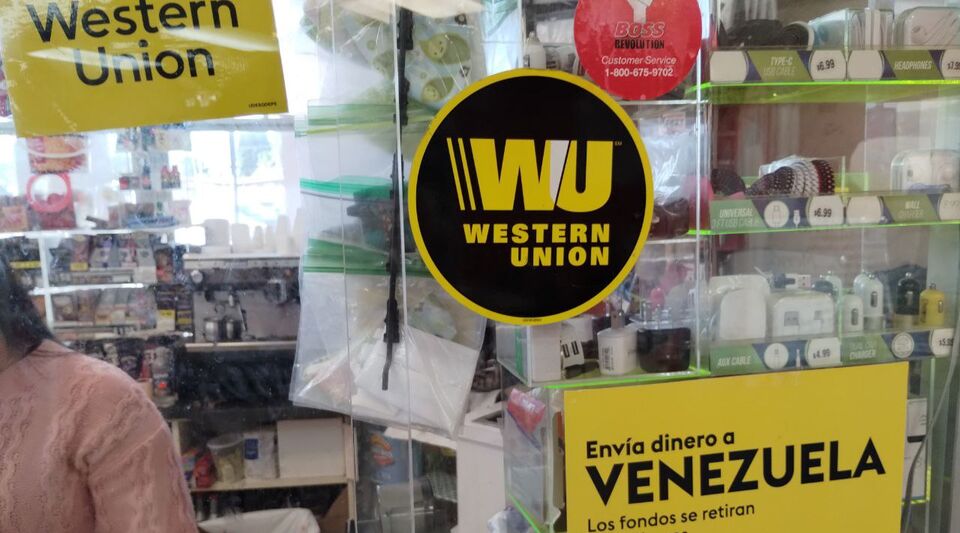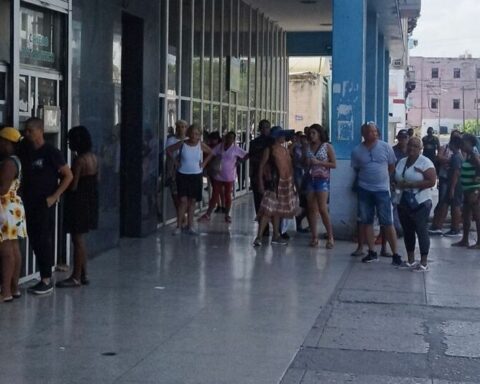The Western Union financial company has taken the first steps to gradually resume, after a two-year interruption, the sending of remittances from the United States to Cuba. The company itself explains in a statement on Wednesday that the service is being resumed through a “pilot program” with the hope of “expanding its operations in the future.”
The president of Western Union’s North American division, Gabriella Fitzgerald, announced “with great pleasure” the resumption of operations to the Island “with an initial test phase.”
The service, indicates the company’s statement, can only be carried out in some branches. The Miami Herald has published a list of offices, which have not been officially confirmed by the company. These are Florida Check Cashing, Navarro, Sedanos, La Fama Supermarkets, Exito Supermarkets, Mundo Communicatel, Price Choice Foodmarket and J&R Century.
Through these offices, up to 2,000 dollars can be sent in a single transaction to Cubans with debit cards or accounts at Banco Popular de Ahorro, Banco Metropolitano and Banco de Crédito y Comercio (Bandec). The funds could be available the same day if they are sent before noon and will be deposited in freely convertible currency (MLC), the Herald says.
On the Western Union website, as well as in the application, the service is not yet available, and the company did not clarify when it will be available.
On the Western Union website, as well as in the application, the service is not yet available, and the company did not clarify when it will be.
Western Union suspended remittances to Cuba –the country’s second source of income, behind the sale of medical services and ahead of tourism– in november 2020after the government of then-President Donald Trump will sanction Fincimex and AIStwo remittance processing entities, for their ties to Gaesa, the conglomerate of companies run by the Cuban military.
A month earlier, the United States Government had formally prohibited remittances to Cuba sent through companies controlled by the Armed Forces. According to the available data, 51.3% of the companies that offered financial services in Cuba at the time had contracts with Fincimex.
In February of last year, the Central Bank of Cuba approved a mysterious “non-bank” financial entity, Orbit SA, to manage remittancesbut most of the population uses informal channels to receive money from their families in the United States.
A part of these remittances are transferred in MLC to their final recipients, but there are also those who prefer to receive them in Cuban pesos to pay for basic services and other operations in national currency.
The news of the resumption of Western Union remittances coincides precisely with the announcement by the Metropolitan Bank of Cuba of new limits for withdrawing cash or making transfers through electronic payment channels.
The norm establishes that, from this Wednesday, clients cannot withdraw more than 80,000 pesos a day and 120,000 a month, as well as make a transfer between individuals. In the case of dollars or its equivalent in MLC, the daily limit per transaction is up to 1,000 and a maximum of 5,000 per month, specified the entity in an online post.
This does not concern, informed the employee of a branch to 14ymedio, to cards for self-employed workers (TCP), but to natural persons with cards for their salary, retirement, savings, fund formation and collaboration accounts.
“Any change in the limits you have to go to the bank to request it, and if you want to send more money at once, you can come to the branch and make the transfer”
On the other hand, the measure is only for electronic transfers. “Any change in the limits you have to go to the bank to request it, and if you want to send more money at once, you can come to the branch and make the transfer. Yes, but we would ask you questions for a model that we must fill out in these cases”, he says, clarifying in a low voice that this “we cannot say.
To make electronic payments when you purchase a product or service, there are no established limits.
Until now, with the magnetic cards associated with bank accounts, only 15,000 pesos could be withdrawn per day and the withdrawal limit per operation was 5,000, according to what was reported. in March of last year the Central Bank of Cuba. The maximum limit of daily operations was ten.
The claims were immediate and several users denounced that it is impractical in an economy that depends on remittances. Internet user Leonardo Jiménez described the measure as “customer mistreatment” because there are “kilometric queues” of users waiting to be served at the bank’s branches due to the poor connection of the electronic channels.
The new limits, clarifies the Metropolitan Bank to the commentators who flooded the official media after learning about the measure, do not limit the purchase of goods and services through payment gateways such as Transfermovil or EnZona. “Service payments have no limits”, the entity responds to Internet users who showed their alarm.
Although the Metropolitan Bank uses the new regulations as part of an “update” of the limits for operations that “have always existed for operations carried out through electronic channels”, the decision aims to deal a blow to the informal remittance market and to the illegal commerce.
The black market for buying and selling products could also suffer from the new limits, since payment with electronic transfers has become increasingly common in these commercial operations. With the devaluation of the Cuban peso, the amounts to pay for certain products have skyrocketed, forcing higher and higher figures to be moved in each transaction.
At the current exchange rate between the dollar and the Cuban peso, the 120,000 CUP that can be transferred monthly is equivalent to 1,000 dollars in the State exchange houses or 700 on the black currency market, a very low figure for the current cost of living in Cuba.
________________________
Collaborate with our work:
The team of 14ymedio He is committed to doing serious journalism that reflects the reality of deep Cuba. Thank you for accompanying us on this long road. We invite you to continue supporting us, but this time becoming a member of our newspaper. Together we can continue transforming journalism in Cuba.








